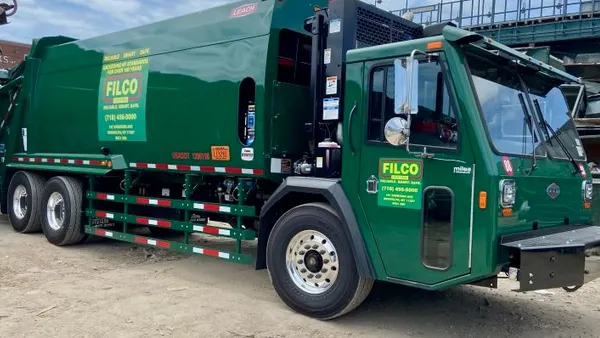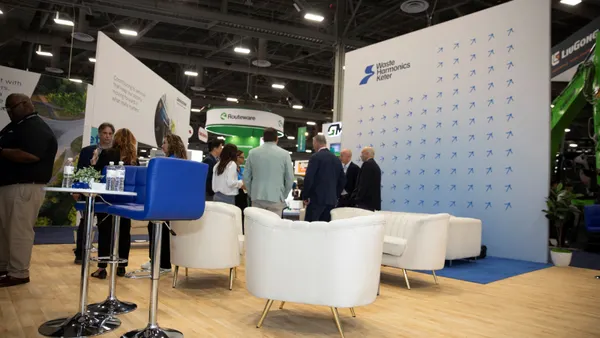Dive Brief:
- San Diego is offering small haulers a limited opportunity to become "certified recyclable material collectors" and transport up to 1,000 tons of food scraps per year to community composting sites. This is the result of a Jan. 23 San Diego City Council vote and companies have until March 11 to apply, as reported by KPBS.
- This comes after the council adopted changes in 2016 that created a new franchise fee system to fund the city's "zero waste" efforts and allowed an exclusion for haulers handling up to 1,000 tons. Organic material wasn't part of that exclusion. Since then, the Healthy Soils Coalition raised concerns about how this would affect composting at farms and community gardens.
- The city's current franchised haulers — all owned by Waste Management, Republic Services or EDCO — were opposed to the change. The San Diego County Disposal Association specifically said that an unlimited number of new permits could reduce revenue for infrastructure. A report from San Diego's Environmental Services Department (ESD) estimated the organics exclusion could cost $54,000-324,000 per year in lost franchise fees.
Dive Insight:
Like other California cities, San Diego is working to hit a 75% recycling rate by 2020 and has set its own "zero waste" targets for future decades. Organics diversion will be a big part of this, and is also mandated for certain generators by current state law. Though like many cities, ESD's recent report found San Diego "currently lacks adequate organics recycling infrastructure to achieve its Zero Waste Plan diversion targets."
While the report recognizes that small-scale composting won't solve those needs, it does view the option as an interim solution.
"After meeting with stakeholders, staff believes that accommodating certain recyclable food material collection within the City for delivery to sites such as farms and community gardens could assist the City in achieving its Zero Waste Plan diversion targets while new private sector organics recycling infrastructure is being developed," reads the report.
Figuring out how to balance that with the need for franchise fees to help support larger infrastructure is still an open question. When factoring in potential franchise exclusions for both recyclable and organics material collectors under 1,000 tons, ESD estimates the city could miss out on up to $540,000 per year. While large franchise haulers haven't had any luck getting a cap placed on these exclusions, the council has agreed to revisit this topic in the fall.
As seen most recently in Los Angeles, where a new franchise system is expected to yield $200 million worth of infrastructure investments, lining up this type of dedicated revenue stream can make a big difference. Large companies may not make the financial commitment as quickly otherwise, because profit margins for both curbside recyclables and food scraps are often less reliable than disposal.
Yet the case can also be made that small-scale collection, especially for organic material going to community compost sites, is the epitome of circular economy ideals that more cities are now espousing. In some cases, community composters are often the first ones doing this work in their cities. When done successfully, this can help reduce vehicle miles traveled, sequester carbon, improve soil quality, expand access to locally grown produce and strengthen neighborhood bonds.
Washington, D.C. has identified community composting as a key part of its organics diversion plan. In a parallel to San Diego, New York recently took a similar step to allow small-scale hauling of organic material outside of its standard commercial licensing requirements. Many other cities also support community composting in various ways, viewing it as complementary and not competitive to larger-scale operations.









